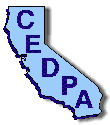
 |
California Educational Data Processing Association |
The DataBus - Vol. 37, No. 1
|
DALLAS, Texas - October 23, 1996 - To help accelerate online access to educational resources in classrooms, Cisco Systems, Inc. today announced the second annual Virtual Schoolhouse Grant Program, which will help schools nationwide connect to the Internet. The grant program awards $500,000 worth of products, service and training to 50 selected K-12 schools that develop a plan and demonstrate the ability to support and implement an internetworking site.
Grants are to be used for curriculum-based applications such as Internet access and in-classroom learning. Selected schools will receive equipment and services valued at approximately $10,000, depending on their individual requirements. Grant recipients for 1997 will be announced on June 30, 1997 at the National Education Computing Conference (NECC) in Seattle, Washington.
"We've helped our students and staff become part of the global network and moved our isolated school from the 'end of road' to the heart of the information city," said John Bushell, media specialist and librarian at Kenai Peninsula's Homer Junior High School in Homer, Alaska. "Through our award in Cisco's 1996 Virtual Schoolhouse program, our 250+ students in more than 20 classrooms are beginning to realize the educational possibilities of gaining computer interactivity with their peers around the country. We will continue to use networking to create our scholastic web site, allow students to work on projects at home and review online work."
Depending on their specific needs, grant recipients will receive an access router, software, service and training. To meet the needs of first-time or beginning networking personnel, Cisco has customized its networking products for the grant program to increase ease-of-use and manageability.
Relevant products include:
Combining these devices with Internet connections will provide schools with access to vast amounts of information in a time-efficient and interactive manner, and the ability to communicate within school districts and beyond to students in other cities and even other countries.
"Schools are using information networks today to combine the best of curriculum with online resources worldwide," said Keith Fox, vice president of corporate marketing for Cisco Systems. "This program is another way of helping students gain access to the educational tools they will need to be successful tomorrow. Combined with our ongoing support for NetDay, the Virtual Schoolhouse Grant program will help expedite the implementation and support of networks in educational institutions."
Grant Applications and Guidelines
Interested schools can receive an application through several channels: by accessing the web site (http://www.cisco.com/edu); calling Cisco's education hotline at (408) 526-4226; or sending an email to . Applications must be received by March 1, 1997. For additional guidance on how to articulate a technology plan for a school's network, Cisco and the University of North Carolina at Chapel Hill have established a World Wide Web site called the Cisco Educational Archive and Resources Catalog home page (CEARCH), which offers information and guidelines for the Grant Program and Cisco's education program.
The Virtual Schoolhouse Grant Program complements Cisco's corporate-wide initiative to provide the benefits of Internet access and international communication in today's classrooms. Cisco sponsors several educational projects such as NetDay and the International CyberFair for Schools, a demonstration of educational and community-related information published by students and teachers on the World Wide Web. Cisco Systems also helps fund the GlobalSchoolhouse Project, an internationally recognized program for demonstrating the use of the Internet in K-12 classrooms across the U.S. and overseas. Cisco supports and participates in numerous educational networking and Internet organizations including CAUSE, the Consortium for School Networking (COSN), EDUCOM, the International Society for Technology in Education (ISTE), the Internet Engineering Task Force (IETF) and the Internet Society.